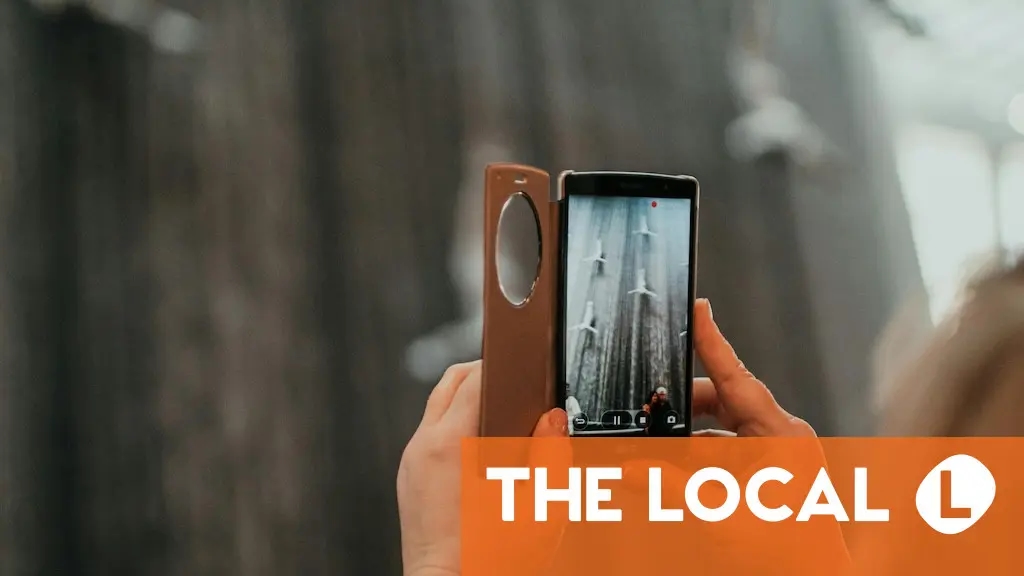Can you film in public in Spain or do you need permission?

People film on their phones all the time, but what happens when you want to publish those clips online? Do you need consent first in Spain? Here's what Spanish law states.
These days almost everyone has a smart phone that can capture small moments, whether that’s your kid’s birthday party or a street festival.
It's so common that most people don’t even think twice about whipping out their mobiles and hitting record when they see something interesting. But are you allowed to photograph or film anyone in the street in Spain, or should you be getting permission first?
The answer all depends on how you’re going to use or publish the videos. Generally, in a public setting like out on the street, filming is allowed, and people of course do it all the time.
The question of legality comes into it when you come to publish that footage. For most people this means uploading them to a social media platform such as Instagram or TikTok or a streaming platform like YouTube.
Spain's Organic Law 1/1982 regulates the fundamental right to honour privacy and one's own image and states that: “The capture, reproduction or publication by photography, film, or any other procedure, of the image of a person in places or moments of their private life” is considered an illegitimate intrusion.
It does, however, state that there is an exception to this rule. "Graphic information about a public event or occurrence when the image of a specific person appears as merely incidental" does not constitute a violation of this fundamental right.
READ ALSO: What's the law on dash cams in cars in Spain?
Ideally, if people are recognisable and appear in your videos or photos, which you intend to publish online, you should ask them for consent to do so. This is particularly important if you capture a child in your video. Spain’s digital law sets the minimum age of consent at 14 years old. This means if you’re filming anyone under that age, you need consent from the child’s parents or guardians first.
If it is not possible to get consent, technically you should blur their faces.
If your social media profile is private this may be less of an issue, but if you have a public one and anyone can see your videos, people do have the right to ask you to take it down if they appear in it.
If they’re just appearing for a couple of seconds as you pan across a scene though and they are not the main subject of the video, this should be fine according to the law above.
If you’ve captured any authoritative person performing a duty which requires anonymity though, then you will not be allowed to publish it. This could be a police officer, guard or similar.
READ ALSO: The rules for flying drones in Spain
If you’re filming for commercial purposes, like advertising or content creation, and you’re making a profit from the videos and photos, then you must always get consent from the people who appear in it.
There are exceptions though, particularly if you have videoed a public figure in a professional capacity or an event like a festival or a street performer. In this case, these people expect to be filmed. They are in the public eye and this is part of their job or something they have chosen to do. In this case, you do not require their consent to publish the video.
While it may not seem like such a big deal to get consent beforehand it’s worth keeping in mind that you could be punished for doing so if someone really doesn’t want their image online. In 2022, the Spanish Data Protection Agency (AEPD) imposed a €10,000 fine on a person in 2022 for "mass dissemination of a recorded video" on the street "without the victim's consent”.
You won’t always be filming at events and parties and pretty places though, sometimes you may start recording because you see a crime being committed or an argument taking place on the street.
It’s important that if you film a crime, you should share it with the police before you publish it on social media. You should also make sure that you blur or pixelate faces or any information that could be used to identify a person like a car licence plate.
So in conclusion, it is legal to record on a public street, unless people specifically ask you not to.
If you’re going to publish and distribute these videos online though, you may need to get consent if it constitutes a violation of data protection regulations.
Please sign up or log in to continue reading
thelocal





